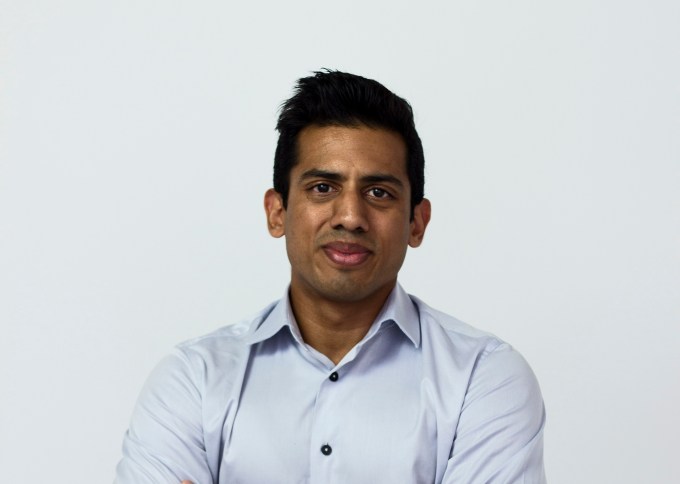South African online healthcare marketplace RecoMed has raised a $1.5 million financing round, the company confirmed to TechCrunch.
The round was led by South Africa-focused venture capital firm Vunani Fintech Fund. RecoMed says the firm invested $1 million; the rest was shared between existing investors Japanese but Africa-focused VC firm AAIC, Growth Grid Venture Capital Partners and Kenyan-based Push Ventures.
The company was founded by Sheraan Amod, who, after a brief stay in the U.S. launching his first tech company, experienced for the first time what it was like to book medical appointments online, which wasn’t the case back in his home country, South Africa.
Amod felt an opportunity to fill this need and returned to South Africa to build RecoMed — the company he refers to as the “booking.com for healthcare.”
RecoMed acts as a marketplace where patients can find and book services with healthcare professionals across South Africa.
Patients can search and browse practitioner profiles, check reviews and then book a physical or virtual telehealth appointment from the website or app.
According to the company, healthcare practitioners, enterprises and insurers use the platform differently.
Practitioners adopt RecoMed’s platform as a standalone platform or via an integration with their external Practice Management System (PNS), a software program used to operate medical and healthcare practices.
For enterprises, RecoMed is white-labeled to allow booking and telehealth functionality for patient customer groups.
Health insurers such as Discovery have adopted RecoMed to power digital healthcare bookings into doctors, clinics and other health professionals for their members, the company said.
RecoMed’s platform helps improve access and healthcare delivery for patients by cutting down the time it would typically take to book the service they need.
RecoMed’s business model is to earn a transactional “per booking” fee from healthcare providers for all bookings generated via the platform. The aggregated marketplace increases patient booking flow to RecoMed’s health provider customers.

Sheraan Amod (CEO, RecoMed). Image Credits: RecoMed
RecoMed, launched in 2013, has not raised more than $3 million but claims to be the largest and fastest-growing healthcare booking in South Africa. The startup says it powers over 200,000 bookings per month, which has grown 700% in 18 months.
The platform is one of the earliest adopters of telehealth in Africa, launching years before the advent of the COVID-19 pandemic when the need for such platforms became more evident.
Although RecoMed did not raise the kind of eye-popping investments seen from its counterparts in other parts of the world, the company has benefited business-wise, positioning itself in assisting large corporates in conducting vaccinations across South Africa.
Some of these companies include Discovery Health and Mediclinic. They have conducted over 550,000 bookings via RecoMed since last year.
“We are facilitating over R250 million [$16 million] of healthcare spend annually. Whether a patient is looking for a convenient doctor appointment or the COVID-19 vaccine jab, we make it simple and easy to do,” Amod said in a statement.
The pandemic also resulted in a net uplift for the usage of RecoMed, the CEO said. The company’s revenue has more than doubled since March this year, he adds.
Per other metrics, over 2,500 contracted health providers on RecoMed and more than 1 million customers use the platform annually.
RecoMed plans to use this funding to add new integrated products to its platform in 2022. Some include integrated online medical payments and e-pharmacy for delivering prescription medication to consumers across the country.
In addition to new product releases, RecoMed is also targeting further geographic expansion, with the company launching in Kenya in January 2022.
Healthtech faces unique challenges around infrastructure in Africa. The market forces and the patchwork of systems used in healthcare locally have made it essential to devise local healthcare technology solutions to African problems.
Amod believes the go-to-market approach for broad-based solutions in health tech should involve a solid B2B2C element, using key partnerships with insurers, banks and telecommunication companies to reach a mass consumer audience — essentially what RecoMed is executing.
“The future of health innovation is an exciting space for Africa as we continue to offer the global market a scalable solution at low cost-and where necessary with low bandwidth, which has never been done anywhere else in the world,” he said.
Lead investor Vunani Fintech Fund, optimistic about RecoMed’s proposed approach to meet identified market needs in South Africa, said via its director Mark Anderson, “We are still in the early days of leveraging technology as a utility in healthcare, so the potential here is massive. We are confident that this latest round of fundraising will make a major contribution towards promoting greater efficiencies in the health ecosystem that will benefit all stakeholders.”
